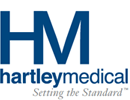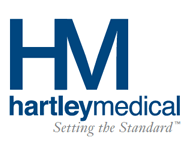In an ongoing effort to keep you updated with regulatory news that may affect your practice, I present the following information.
In light of last year’s NECC tragedy, compounding pharmacies across the United States have been affected on many fronts. Insurance companies are currently evaluating the practices of compounding pharmacies to determine whether or not they wish to continue providing coverage. Federal and state regulatory agencies are reexamining and altering policies that could potentially change pharmacy activities. In Massachusetts, the Board of Pharmacy found that 4 out of 37 compounding pharmacies fully complied with state regulations ““ a shocking statistic. And in the wake of this, some industry experts question the Board’s actions toward these pharmacies that are meeting the needs of the patient’s within that state.
On this side of the U.S., the California Board of Pharmacy has forwarded a bill to the Legislative Branch that appears to propose a requirement that pharmacies licensed outside the state of California that are involved with sterile compounding must possess a sterile compounding license.
Here at Hartley Medical, we have held a sterile compounding license since 2004. What I find interesting in this new legislation and changing regulation is the proposed stipulation that non-resident compounding pharmacies involved with sterile compounding may be required to pay for all travel expenses to their facilities for Board of Pharmacy inspectors to survey their facility. Additionally, some states have changed their regulations to prohibit compounding pharmacies from furnishing non-patient specific medications. This action, though implemented with the right intentions, appears (in my opinion) to be a knee-jerk response for the purpose of protecting patients. However, this decision could put patients at a heightened risk by interrupting patient treatment and limiting access to quality medications and providers. The regulation change may force medical professionals to work with pharmacies that they have little to no past experience with and/or knowledge of, and may require these professionals to suddenly switch providers without first performing adequate due diligence. Hartley Medical has continually said, “Not all compounding pharmacies are the same.” This regulation change could be the harsh reality that proves the aforementioned statement to be true “¦ and potentially at the risk of patient safety.
Lastly, we have seen some states now require that the Pharmacist in Charge of a non-resident pharmacy become licensed within that state to continue doing business. The cost of doing business is increasing and therefore affects the cost of healthcare; this is likely to be a surprise to no one. Hartley Medical will continue to provide you with updates as matters change, and we will always provide the highest quality of product and level of care for patients.
Sincerely,
For more information, visit Hartley Medical’s Knowledge Center by clicking here.


Leave A Comment